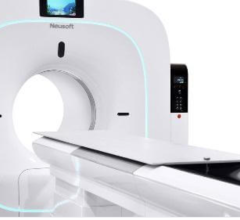June 12, 2014 — How many millions of people suffer from sleep disturbance? One sleep disorder in particular, called REM behavior disorder, could be a sign of impending neurodegenerative disease, including Parkinson’s and dementia, say scientists presenting their research at the Society of Nuclear Medicine and Molecular Imaging’s 2014 Annual Meeting.
Researchers are not sure why spontaneous and unexplained disturbance in REM sleep should lead to a neurodegenerative disease like Parkinson’s, but new longitudinal imaging data show a clear correlation between idiopathic REM behavior disorder and dysfunction of the dopamine transporter system involved in a wide range of vital brain functions, including memory and motor control. Dysfunction associated with dopamine in the brain marks the first hints of Parkinson’s disease.
In order to gauge the relationship between the REM sleep disorder and neurodegeneration, scientists performed molecular neuroimaging using a technique called single photon emission computed tomography (SPECT), which allows clinicians to evaluate bodily functions instead of focusing on structure, the forte of conventional radiology.
“Our SPECT study showed a trend toward decreased dopamine transporter density in the brain and Parkinsonism in the follow-up data of patients with REM sleep disorder who had no previous evidence of neurodegenerative disease,” said Hongyoon Choi, M.D., a Ph.D. candidate and researcher in the department of molecular medicine and biopharmaceutical sciences at Seoul National University Bundang Hospital, Sungnam, Korea. “To our knowledge, a study looking at a long-term link between the two has never been conducted before.”
A total of 21 consecutive patients with no known Parkinsonism or cognitive decline were enrolled in the long-term study between 2004 and 2006 and were followed after about eight years. A baseline SPECT scan of dopamine transporter function was performed with the radiopharmaceutical I-123 FP-CIT as an imaging agent. A follow-up scan was performed to assess progression of neurodegenerative disease. Results showed that after follow-up, patients’ SPECT scans revealed substantial decreases in radiotracer binding to the dopamine transport system in the nigrostriatal regions of the brain. A lack of tracer binding in these regions of the brain is closely linked to neuronal degeneration and the development of dementia and movement disorders.
A total of 10 patients out of the original 21 patients with disturbed REM sleep were found to have decreased striatal tracer binding at the beginning of the study. Of these, seven had developed neurodegenerative disease by follow-up some years later, including four patients who developed Parkinson’s disease and two patients who developed dementia with Lewy bodies, a neurodegenerative disease identified by the build-up of proteins, called Lewy bodies, in brain regions associated with memory muscle control.
“In the future, dopamine transporter imaging could potentially predict development of Parkinson’s and other neurodegenerative diseases in patients who have known risk factors including idiopathic REM behavior disorder,” Choi said.
For more information: www.snmmi.org


 July 30, 2024
July 30, 2024 








